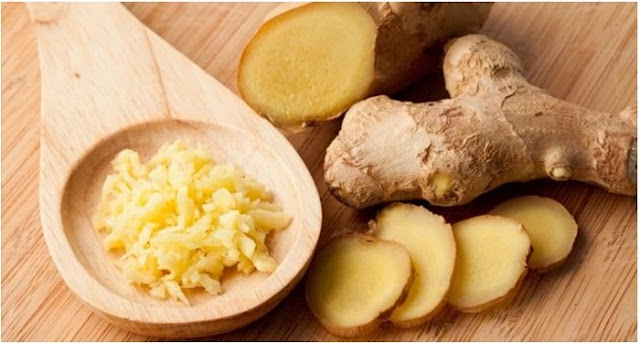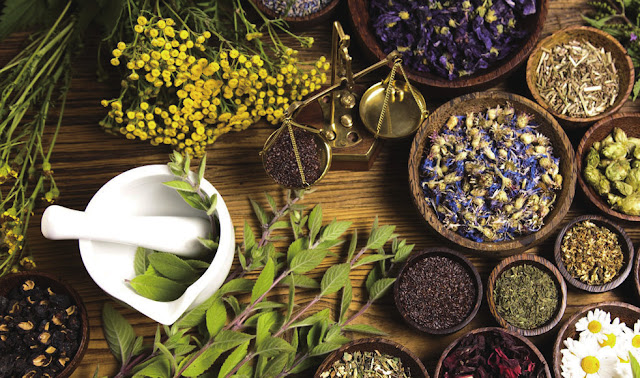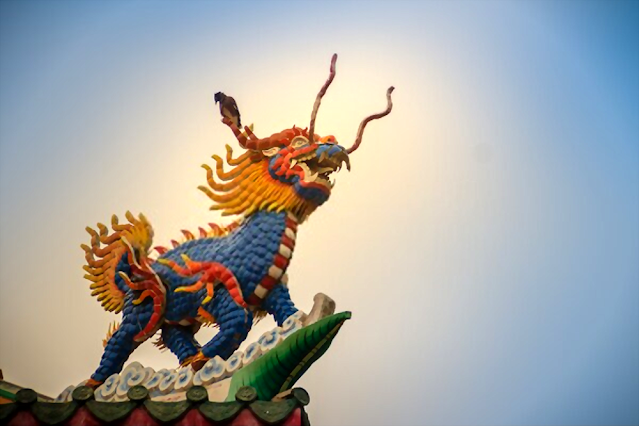10 Most Common Herbs and Spices to Keep Healthy
The use of herbs can be traced way back to Chinese history, and over the thousands of years, the Chinese have figured out so many herbs that are conducive to human beings. Here are the ten most common herbs and spices you can find to keep healthy. You can even make a delicious meal out of these herbs.
- 1.Cinnamon
Cinnamon is ubiquitous in our lives. It's one of the key spices in stewed meat in Chinese restaurants. While westerns often put it into coffee or tea to improve the taste.
Benefits of Cinnamon
I. Nourishing
Cinnamon is good for both men and women. It can alleviate the intolerance of cold and soreness of the loins caused by the weak kidney. For women, cinnamon has a particular regulating effect on symptoms like infertility, dysmenorrhea, and amenorrhea.
II. Preventing Cardopvascular Disease
Cinnamon can increase coronary blood flow, protect the myocardium, and improve myocardial function.
III. Improve Flavor
Cinnamon is a natural spice; it can make the food fresh and fragrant.
 |
| Cinnamon |
Things to Consider
Don’t overuse it as cinnamon may increase your liver's activity, which may cause mouth sores. Besides, pregnant ladies should not consume cinnamon. For other considerations, please consult your physician.
How to Use It?
The most common way is to put it into your food as a spice. Some Chinese elders like to drink it with water, which is suitable for insomnia.
- 2.Peppermint
Peppermint is a kind of beautiful plant. Many people like to grow it at home. However, peppermint is more than just an ornamental plant; it also has an exceptionally high medicinal value.
Benefits of Peppermint
I. A small portion of peppermint helps to excite your nervus centralis, improve blood circulation and the secretion of sweat glands, therefore, cooling your body.
II. Peppermint can help to relieve cat fever and ease throat pain, abdominal bloating, diarrhea, and indigestion.
III. Peppermint is also good for your heart and blood pressure lowering.
 |
| Peppermint |
Things to Consider
Those who are weak, sweat a lot, and with blood, dryness should not use peppermint. People with a weak spleen must be careful when using the peppermint. They can't take it too much. For more detailed use of peppermint, it's better to consult your physician.
How to Use It?
Peppermint mostly serves as a kind of drink. It will refresh your mind and calm your mood.
- 3. Ginger
Ginger is native in India and Malaysia and introduced to China a long time ago. There are two kinds of gingers, the tender ginger, and mature ginger, based on the usage and harvest season. Tender ginger is mostly harvested in August. It's juicy, less fibrous, and less pungent. Besides being a spice, tender ginger can be used to make ginger candy. Mature ginger is harvested in November. It's less juicy and more intense. No matter the tender ginger or mature ginger, they both make the great spice.
Benefits of Ginger
I. Prevent cold: if you're sensitive to coldness, few slices of ginger or a hot ginger drink will do you tremendous good.
II. Ease waist and shoulder pain: Those who suffer from scapulohumeral periarthritis put a towel soaked with hot ginger water to ease the pain.
III. Ease car sick: if you feel car sick, have a slice of ginger, you will survive for 4 hours at least.
 |
| Ginger |
Things to Consider
Those who are weak and with internal heat shouldn't eat ginger. Don't have the rotten ginger as the toxin released by the rotten part can cause cancer.
How to use it?
Ginger is a vital food material. You can use it as a significant ingredient or spice. Chinese people like to put ginger slices into stewed meat.
- 4. Garlic
Garlic is a perennial herb that belongs to allium. It was brought into China in the Western Han Dynasty, and since then, it became a popular spice. There are two kinds of garlic, the purple-skinned garlic, and the white-skinned garlic. The first one is more pungent and used in Chinese medicine.
 |
| Garlic |
Benefits of Garlic
I. Strengthen the immune system and sterilize: garlic is recognized as the "king of cancer-fighting". Its antioxidant effect is even better than that of ginseng. Studies show that garlic can help to promote digestion, improve immunity, kill germs, etc..
II. Detox and clear colon: garlic can effectively restrain and kill the bacteria and cleanse the stomach's toxic substances, improving the digestion.
III. Lower blood sugar
Things to Consider
People who are weak and with internal heat are not recommended to eat garlic.
- 5.Gingko
The gingko tree is a kind of large deciduous tree with a long lifespan. It's incredibly beautiful in autumn when all the leaves turn yellow. However, do you know that the gingko fruit is also a vital medicine ingredient?
Benefits of Gingko
Modern pharmacological studies show that gingko contains ginkgolic acid, ginnol, ginkgo flavonoid glycosides, hydrogenated quinolinic acid, etc., which can smooth blood vessels, improve brain function, delay the brain aging, enhance memory, and improve the blood supply to the brain. Meanwhile, it has a preventive effect on hypertension, coronary heart disease, senile dementia, etc.. Lastly, gingko has certain disinfection and sterilization effects.
 |
| Gingko |
Things to consider
Excessive use of gingko may cause poisoning.
How to use it?
There are many ways to cook gingko. Some of the common ways are putting the gingko into stewed meat to cook or put the cooked gingko into milk. Just don’t put too much of it. If you eat gingko for a certain purpose, please consult your doctor.
- 6.Turmeric
Turmeric is a kind of perennial herb with medicinal value. It's slightly spicy, with a hint of pepper, musky, orange, and ginger.
Benefits of Turmeric
I. Turmeric can help to protect the heart.
II. Turmeric can reduce the chance of Alzheimer's disease.
III. Turmeric has a strong anti-inflammatory effect.
Things to consider
Turmeric is not suitable for people with kidney disease, gastric ulcer, blocked bile ducts, and pregnant women.
 |
| Tumeric |
7.Flax Seed
Flax Seed is one of the oldest plants in the human world. It became a popular health food in the 1990s. But do you know its benefits and side effects?
Benefits of Flax Seed
I. Make skin smooth and soft, consume excess body fat.
II. Reduce allergic reactions.
III. Alleviate asthma.
IV. Prevent and improve arthritis.
V. Reduce the heart's load.
Things to consider
Pregnant women or women in lactation should not have flaxseed.
 |
| Flax Seed |
- 8.Chrysanthemum
Chrysanthemum is a kind of flower with high medicinal and ornamental value. It blooms during September and October. It can be used to treat many senile diseases.
Benefits of Chrysanthemum
I. Chrysanthemum can help lower blood pressure, eliminate cancer cells, dilate coronary arteries, and inhibit bacteria.
II. Chrysanthemum is good for improving eyesight.
III. Chrysanthemum can act as a kind of nerve-strengthening agent to enhance capillaries' resistance, delay aging, and enhance physical strength.
 |
| Chrysanthemum |
Things to consider
Chrysanthemum is cold in nature. Those who eat less and have low vital energy or diarrhea cannot have chrysanthemum. For those who suffer from pharyngitis, weak spleen, pain in the abdomen, and blood deficiency, chrysanthemum is not recommended.
How to use it?
Chrysanthemum can be made into soup, cream, cake, or porridge, but the easiest way to consume it is to make chrysanthemum tea.
- 9.Lavender
Lavender is a plant that has ornamental and medicinal functions. The most familiar use of lavender is to make essential oil out of it, clear heat, cleanse the skin, and relieve stress. The fact is lavender itself is more useful than the essential oil.
Benefits of Lavender
I. Lavender can be used to calm minds and hypnotize people.
II. Lavender can resist many kinds of bacteria and sterilize them.
III. The water extract of lavender can protect neurons.
IV. Lavender is excellent in reducing lipids.
V. Lavender contains ingredients that can be used to treat cardiovascular insufficiency and neurosis.
 |
| Lavender |
Things to consider
Lavender is suitable for most people, and 2-3 grams each time is perfect. However, people with low blood pressure, and pregnant women need to avoid using it.
How to use it?
Lavender is useful in many ways. For example, it can be made into cookies, milky tea, ice cream, porridge, cake, etc..
- 10.Orange Peel
The orange peel comes from the oranges we eat every day. It has high medicinal values, and the longer it's dried, the better it is.
Benefits of Orange Peel
I. Orange peel contains volatile oil, which can help to digest.
II. Orange peel is conducive in invigorating the spleen, resolve phlegm and relieve vomit.
III. Orange peel can help to constrict renal blood vessels.
 |
| Orange Peel |
Things to consider
Those with too much stomach acid should not take orange peel. Those who are pregnant or under meditation can't take orange peel.
How to use it?
Orange peel can be mixed into food, made into soup or tea.
So you’ve known the ten most common herbs. What’s left for you is to find them and take them as prescribed, and you are heading for a more healthy life.




Comments
Post a Comment